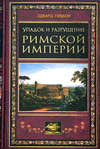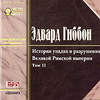Loe raamatut: «Private Letters of Edward Gibbon (1753-1794) Volume 2 (of 2)»
418.
To his Stepmother
Bentinck Street, July 3rd, 1781.
Dear Madam,
Though your kind impatience might make the time appear tedious, there has been no other delay in my business, than the necessary forms of Election. My new constituents of Lymington obligingly chose me in my absence. I took my seat last Wednesday, and am now so old a member that I begin to complain of the heat and length of the Session. So much for Parliament. With regard to the board of trade, I am ignorant of your friend's meaning, and possibly she may be so herself. There has not been (to my knowledge) the most distant idea of my leaving it, and indeed there are few places within the compass of any rational ambition that I should like so well.
In a few days, as soon as we are relieved from public business, I shall go down to my Country house for the summer. Do not stare. I say my Country house. Notwithstanding Caplin's very diligent enquiries, I have not been able to please myself with anything in the neighbourhood of London, and have therefore hired for three months a small pleasant house at Brighthelmstone. I flatter myself that in that admirable sea-air, with the vicinity of Sheffield place, and a proper mixture of light study in the morning and good company in the evening, the summer may roll away not disagreably. – As I know your tender apprehensions, I promise you not to bathe in the sea without due preparation and advice.
Mrs. Porten has chosen, not for health but pleasure, a different sea-shore: she has been some weeks at Margate, and will scarcely return to town before my departure. I sincerely sympathize in all the melancholy scenes which have afflicted your sensibility, and am more particularly concerned about poor Miss Gould, to whom I wish to express the thoughts and hopes of friendship on this melancholy occasion. Lady Miller's1 sudden death has excited some attention even in this busy World, her foibles are mentioned with general regard. Adieu, Dear Madam, and do not let Mrs. Ravaud tempt you into Elysium: we are tolerably well here.
I amEver yours,E. Gibbon.
419.
To his Stepmother
Bentinck Street, July 9th, 1781.
Dear Madam,
Nothing but my absence (on a visit to Mr. Jenkinson2 in Surrey) should have prevented me from writing by the first post to remove those fears which could be suggested only by too exquisite a sensibility. I am well and happy; the modest expression of tolerably was intended to express a very high degree of content, and I most sincerely assure you that my journey to Brighthelmstone is in search not of health but of amusement and society.
I am, Dear Madam,Ever yours,E. Gibbon.
420.
To his Stepmother
Brighthelmstone, July 26th, 1781.
Dear Madam,
HIS HOUSE AT BRIGHTON.
After a short visit to Sheffield I came to this place last Sunday evening, and think it will answer my expectations. My house, which is not much bigger than yours, has a full prospect of the sea and enjoys a temperate climate in the most sultry days. The air gives health, spirits and a ravenous appetite. I walk sufficiently morning and evening, lounge in the middle of the day on the Steyne, booksellers' shops, &c., and by the help of a pair of horses can make more distant excursions. The society is good and easy, and though I have a large provision of books for my amusement, I shall not undertake any deep studies or laborious compositions this summer. You will rejoyce, I am sure, in hearing so favourable an account of my situation, and I wish I could propose to you to share it with me.
I am, Dear Madam,Most truly yours,E. Gibbon.
421.
To his Stepmother
Brighthelmstone, August 24th, 1781.
Dear Madam,
Of all mortals I have the least right to complain of a friend's silence, but yours has been so long and so unnatural that I am seriously alarmed. If you can assure me by a line that it does not proceed from want of health or spirits, I shall be perfectly at ease. Notwithstanding our princely visitors (the Cumberlands) who are troublesome, I like the air and society so well that I shall certainly stay here at least till the end of September. Adieu.
I am, Dear Madam,Ever yours,E. G.
422.
To Lord Sheffield
Brooke's, Thursday Evening, 1781.
What I hear would fill volumes, what I know does not amount to half a line. – All is expectation: but I fear that our enemies are more active than our friend. He3 is still at Bushy; a meeting is held next Saturday morn at eleven o'clock, but I think you need not hurry yourself. According to Louisa's phrase, I will be your grandfather. The black Patriot4 is now walking and declaiming in this room with a train at his heels. Adieu. No news.
E. G.
If there is another meeting Sunday evening you shall find a note. I have not seen Lord Loughborough, but understand he has preached war and any coalition against the Minister.
423.
To Lord Sheffield
1781.
Mrs. Williams, No. 8, Downing Street, will embrace Lord S., Mr. Purden and Co. for two Guineas and a half per week. The stables and Coach houses will be empty, and Mr. Collier will provide the needful refreshments. – Sir R[ichard] W[orsley] has opened the trenches in Doctors Commons, and cryed down his wife's credit with tradesmen, &c. I supped last night at Lord L[oughborough]'s with Mrs. Abingdon,5– a judge and an actress; what would Sir Roger Hill6 say? Dinner will be on table at five o'clock next Monday in Bentinck Street.
Saturday night. Brookes's absolutely alone. The town even yet very empty.
424.
To Lord Sheffield
Friday, two o'clock, 7th Sept., 1781.
FRENCH AND SPANISH FLEETS IN THE CHANNEL.
Lord Hillsborough7 tells me that himself and Co. believe that the combined fleets are gone into Brest. Expresses that left Bristol yesterday, and Plymouth, Wednesday, cannot give the least account of them, and a Portuguese ship from Lisbon the 23rd last month, beat several days between Scilly and the Land's end without seeing or hearing of them. However, at all events more than twenty-five swift sailing vessels had been sent out to meet and warn the West India fleets. Adieu.
We shall meet at Brighton on Monday.
E. G.
425.
To Lady Sheffield
Bentinck Street, Friday evening, ten o'clock, 1781.
*Oh, ho! I have given you the slip; saved thirty miles, by proceeding directly this day from Eartham to town, and am now comfortably seated in my library, in my own easy chair, and before my own fire; a style which you understand, though it is unintelligible to your Lord. The town is empty; but I am surrounded with a thousand old acquaintance of all ages and characters, who are ready to answer a thousand questions which I am impatient to ask. I shall not easily be tired of their Company; yet I still remember, and will honourably execute, my promise of visiting you at Brighton about the middle of next month. I have seen nobody, nor learned anything, in four hours of a town life; but I can inform you, that Lady * * * [erased] is now the declared mistress of Prince Henry of Prussia, whom she encountered at Spa; and that the Emperor has invited this amiable Couple to pass the winter at Vienna; fine encouragement for married women who behave themselves properly! I spent a very pleasant day in the little paradise of Eartham, and the hermit expressed a desire (no vulgar compliment) to see and to know Lord S. Adieu. I cordially embrace, &c.*
426.
To his Stepmother
Bentinck Street, October 6th, 1781.
Dear Madam,
I have meditated a letter many posts, and the bell of Saturday evening now admonishes or rather reproaches. Allow me only to say that I am perfectly well, and expect very soon some more lines. The season no longer invites me to Brighthelmston, but the Sheffields, &c., insist on my passing another fortnight there, which will carry me (as I shall not go till Sunday seven-night) to the end of the month.
I am, Dear Madam,Ever yours,E. Gibbon.
427.
To Lord Sheffield
Bentinck Street, Oct. 21st, 1781.
The last ten years by your advice I ensured my farm buildings at Buriton and no accident happened. This year after your example I have ceased my insurance, and – read Hugonin's two letters, which I have just received and answered. I thank him for undertaking the necessary work, press for Harris's immediate resignation, and propose to weigh during the Winter the choice of tenants and the scale of repairs. The present rent is only £50. – If any ideas occur to you, communicate your instructions, and he will receave them with deference, but the subject makes me heavy. The time is ill chosen. If you go to Coventry you must pass through town – when? But I have almost done with Hampton Court. I may see Lord Beauchamp, but do not understand that I have anything to say to him from you. His brother may be a tolerable accession to the Party,8 and let me tell you it is no contemptible one. I mean the party of the H. of C. If we ever meet at S. P. you will introduce me to the Lady of whom I hear a very amiable character. Adieu. I arrived this morn from Eden's. Lord Loughborough does not arrive this week. From Cambridge I understand that you have suffered by the fatigues of the Camp.
Inform me of your health.
E. G.
428.
To his Stepmother
Brighthelmstone, Nov. 2nd, 1781.
Dear Madam,
If I had not been fortified by the friendly assurances which you sent me, I should indeed have been alarmed by the melancholy account that I heard of your health as soon as I arrived in Sussex. Since that time (an interval somewhat too long) I have been gradually better satisfied with the frequent and favourable dispatches from Bath, and I have now the satisfaction to find (however I might suspect your own friendly dissimulation) that even in Mr. H.'s apprehensive fancy you have in a great measure recovered that situation which I wish you long to preserve.
BRIGHTON IN NOVEMBER.
*I returned to this place with Lord and Lady Sheffield, with the design of passing two or three weeks in a situation which had so highly delighted me. But how vain are all sublunary hopes! I had forgot that there is some difference between the sunshine of August and the cold fogs (though we have uncommon good weather) of November. Instead of my beautiful sea-shore, I am confined to a dark lodging in the middle of the town; for the place is still full, and our time is now spent in the dull imitation of a London life. To compleat my misfortunes, Lord S. was hastily ordered to Canterbury, to suppress smuggling, and I was left almost alone with My Lady, in the servile state of a married man. But he returns to-day, and I hope to be seated in my own library by the middle of next week. However, you will not be sorry to hear that I have refreshed myself by a very idle summer, and indeed a much idler and more pleasant winter than the house of Commons will ever allow me to enjoy again.*
I hear of no public changes of administration, but you are perhaps already informed that a grand officer of my household (Mrs. Ford) at length retires on a pension, her wages for her life, with which she seems well contented, though I am ignorant of her plans. Mrs. Porten opened the business to her, but I have not yet sustained the last tender interview which I really dislike very much. Caplin assumes with pleasure the office of prime minister, and we hope that some lessons at White's will turn the housemaid (Edward's sister) into a good Cook for private ordinary days.
*I had almost forgot Mr. Hayley; ungratefully enough, since I really past a very simple, but entertaining day with him. His place, though small, is elegant as his mind, which I value much more highly.* And Adam might be happy if Eve had never been admitted into the paradise of Eartham. She is resolved (the air of Eartham after fifteen years' residence is found to be too cold) to eat another Bath apple, which as you properly apprehend will not be very wholesome either for her fame or his fortune. *Mrs. H. wrote a melancholy story of an American mother, a friend of her friend, who in a short time had lost three sons: one killed by the savages, one run mad from the fright at that accident, and the third taken at sea, now in England a prisoner in Forton hospital. For him something might perhaps be done. Your humanity will prompt you to obtain from Mrs. H. a more accurate account of names, dates, and circumstances; but you will prudently suppress my request, lest I should raise hopes which it may not be in my power to gratify. Lady S. begs to send her kindest Compliments to you.* The persons of Bath by whom and to whom I wish to be remembered are Mrs. Ravaud and the Goulds. What is become of poor Sir John Miller? I foresee very little prospect of visiting Bath at Christmas, but I depend, perhaps with too much confidence, on next Easter.
I am, dear Madam,Ever yours.
429.
To Lord Sheffield
Bentinck Street, ¼ before five, 1781.
HIS ADVICE IN A QUARREL.
I have seen the General. You are both wrong; he first in lending your papers without special leave, and then in the real or apparent slight of your messages; you in the serious anger which you expressed on so trifling a business. Unless you wish that this slight scratch should inflame into an incurable sore, embrace the lucky opportunity of his illness and confinement, which will excuse your dignity and should assuage your resentment. Call on him this evening, give and receive, between jest and earnest, a volley of damns, and then let the whole affair be no more remembered than it deserves. Dixi et liberavi animam meam.
430.
To Lord Sheffield
Bentinck Street, November 20th, 1781.
I came yesterday from Jenkinson's (near Croydon), where I had spent two very agreeable days. We all tremble on the edge of a precipice, and whatever may be the event, the American war seems now to be reduced to very narrow compass both of time and place.
This morning Caplin was sent to reconnoitre: he reports that the stables are empty, but as the coach-house is full, the close alliance between carriage and horses will render the former circumstance of little avail. Nothing can be had in Parliament Street or the large streets adjoining except one whole house at four Guineas per week. In Fludyer and Downing-streets several indifferent and gloomy lodgings are at your service, but as I should prefer a Pall Mall, &c. situation, Caplin has paused till you send him more peremptory commands. – Your Monday dinner will be ready at five, and Adam, perhaps Batt, will be of the party.
Your Greeks were not carried from Brighton through carelessness, but as you are seriously absurd about lending books, I have directed Caplin to send them to S. P. per coach. By way of revenge I may inform you that I have now purchased a copy of Stephen's Greek Poets compared to which yours is very little more than waste paper. Adieu.
I embrace my Lady. I do not approve of her being called Cat.
E. G.
431.
To his Stepmother
H. of Commons, December 6th, 1781.
Dear Madam,
I wish most sincerely that it were in my power to give you or myself any comfort on the present state of public affairs, which is indeed deplorable and I fear hopeless. But at last I can send you a favourable account of myself: the late, hot, melancholy hours of the house of Commons,9 which seem to oppress every body round me, have no effect on my health or spirits, and I feel myself heartily tired (ennuyé) without being in the least fatigued. Of Mrs. P. I shall say nothing, as by this time you will have seen her brother and his wife, who set out this morning for Bath. A month without business will be a new and wholesome scene for Sir Stanier. I hear nothing, and want to hear something of Mrs. Hayley. You have heard of Lady Worsley; your old acquaintance Sir Richard labours with copious materials for a divorce.
I am, Dear Madam,Ever yours,E. G.
Thanks for the Carpet.
432.
To his Stepmother
Bentinck Street, December 26th, 1781.
Dear Madam,
Will you excuse my only transmitting the needful, with the necessary assurance that I am well and happy, and the unnecessary addition, that I wish you long to remain so? I envy Sir Stanier and Lady Porten the pleasure which I shall not enjoy till Easter: pray give my love to them. I pity poor Delacour and his friends, above all his Christian wife or daughter. Give my compliments to Mrs. Hayley, and tell her that both song and music have been much applauded. Will she accept this notice as a letter? Adieu, Dear Madam. Believe me,
Most truly yours,E. Gibbon.
433.
To Lady Sheffield
Bentinck Street, Dec. 29, 1781.
NOISE AND NONSENSE OF PARLIAMENT.
As Sheffelina has modernized herself by securing an unknown Cicisbeo, I have a great mind to propose a partie quarrée which might be easily furnished from Ickworth. If that project is rejected and I must make a solitary visit, I shall still obey the gracious mandate, but instead of the third day of the year (may it be more auspicious) 1782, I must delay my attendance till about the 8th or even the tenth, which will still allow me eight or ten days of fresh air and friendly converse, before I again descend into the noise and nonsense of the Pandemonium. At present we are as quiet in London as you can be in Sussex. Mrs. Stuart's shocking adventure is the only event that enlivens conversation; the family whisper insanity (a terrible resource), and strive without success to persuade that the whole scene passed only in her imagination – yet she certainly passed the whole night abroad. I did suppose that the Baron would be tired of his home in a week, but as this visit to the Regiment will abridge the remaining interval he may possibly support it. I hear nothing more of the house in D. S., but still believe that the minister will retire before your superior majesty;10 the last time I saw him he expressed great apprehension of your displeasure. I too am in pursuit of a house, in Harley Street, somewhat further in the country than my own: it has but one fault, a steep narrow staircase, but where must we seek (except at – ) either a house or a wife without one fault? I embrace the Angels, Princesses, &c. I believe the elder had rather be a Princess than an Angel. Adieu.
Le Grand Gibbon.
434.
To his Stepmother
Jan. 23rd, 1782.
Dear Madam,
I am not sorry that the indiscretion of certain female correspondents should give the opportunity of sending you a very fair but not flattering picture of myself. – It is very true that I have had a fit of the Gout; but if the name of agreable can ever be applied to the ugly monster, my Gout has deserved it on this occasion. It lasted on the whole no more than ten days, attacked only one foot, was attended with scarcely any fever, loss of appetite, or lowness of spirits, and has left me in perfect health both of mind and body. – Our busy scene commences to-morrow;11 and I am now entering into the hurry of the winter: but I will write again soon.
I amMost truly yours,E. G.
435.
To his Stepmother
March 2nd, 1782.
Dear Madam,
I am much afraid that I have lost all credit by repeated promises and repeated neglects, yet I still persuade myself that you are glad to hear, though in two lines, of my health and good spirits, and that you will postpone more ample conversations to the Easter Holydays, when I can talk more in an hour than I could write in a month. Perhaps I should even have delayed this scrap of an Epistle, were I not apprehensive that the parliamentary events of this week would have given you some uneasiness both on a private and public account. Though I am not in the secret, especially of the adverse party, yet I know more than it is proper to trust to paper.12
The situation of the administration, though dangerous, is not absolutely desperate, and with some concessions I still think that Lord N. may survive the impending storm of the next fortnight. At all events, if we fall (for, inconsiderable as I am, I am sure of being one of the first victims) I shall meet my fate with resolution. – I remember you asked me an age ago about a report of my having got a house in Harley Street and a wreck of wine on the Coast of Sussex: the former was a fruitless negociation, the latter related to my aunt's manor of Newhaven, but the wine is contested by the King's officers, and the litigation, if pursued, may cost her more than the object is worth. Adieu. My Dear Madam, on every account I am impatient for the Easter holydays.
I amEver yours,E. G.
The new Cabinet consisted of the following ministers: —




















